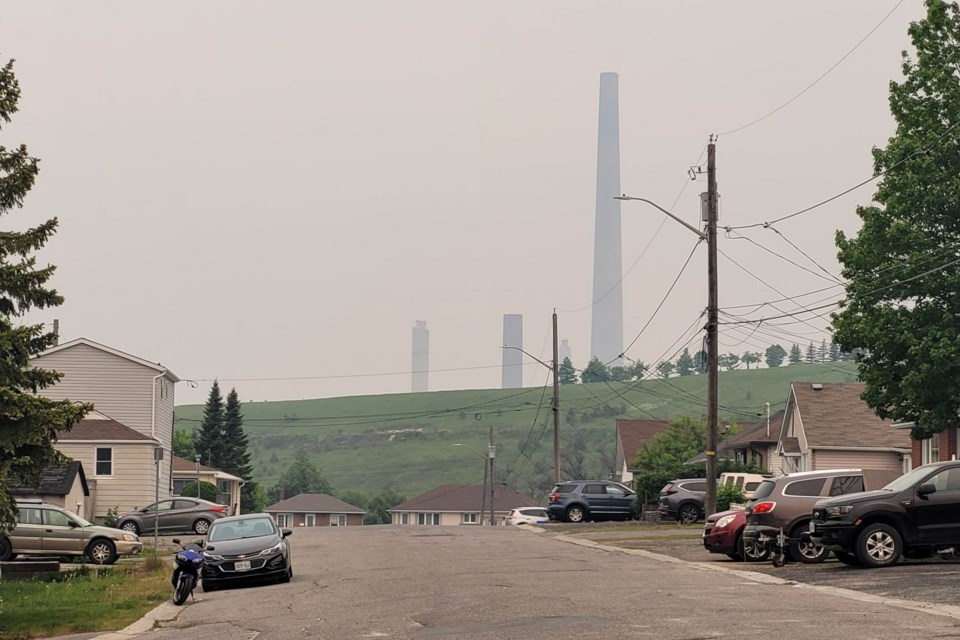The hazy air and smell of smoke over the Nickel City has prompted Environment Canada to issue a special air quality statement for the Greater Sudbury and the area as smoke plumes from forest fires in Quebec impact air quality in the region.
The air quality health index is considered very high for people most at risk, and will remain so for much of the day. The air quality is expected to improve by this evening, dropping the health index risk to moderate by tonight, and low risk by Sunday.
“People with lung disease (such as asthma) or heart disease, older adults, children, pregnant people, and people who work outdoors are at higher risk of experiencing health effects caused by wildfire smoke,” Environment Canada advises.
It is recommended those most at risk stop or reduce activity levels if breathing becomes uncomfortable or you or someone in your care feel unwell.
It is also advised to check the Air Quality Health Index (AQHI) and monitor symptoms.
“People respond differently to smoke. Mild irritation and discomfort are common, and usually disappear when the smoke clears. Drinking lots of water can help your body cope with the smoke.”
Those with an HVAC system in their home can use the highest rated MERV filter for (ideally rated 13 or higher) and set the fan to recirculate air constantly to keep interior spaces free of wildfire smoke.
“You can also use a portable High Efficiency Particulate Air (HEPA) air cleaner… (or) keep your doors and windows closed if the temperature in your home is comfortable.”
Those at risk who must spend time outdoors can use a well-fitted respirator-type mask (such as a NIOSH certified N95 or equivalent respirator) that does not allow air to pass through small openings between the mask and face to help reduce exposure to the fine particles in smoke. “These fine particles generally pose the greatest risk to health. However, respirators do not reduce exposure to the gases in wildfire smoke. It is important to listen to your body and reduce or stop activities if you are experiencing symptoms.”
